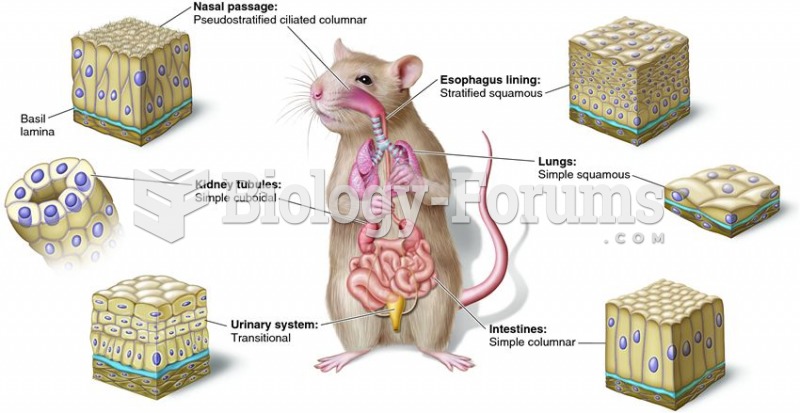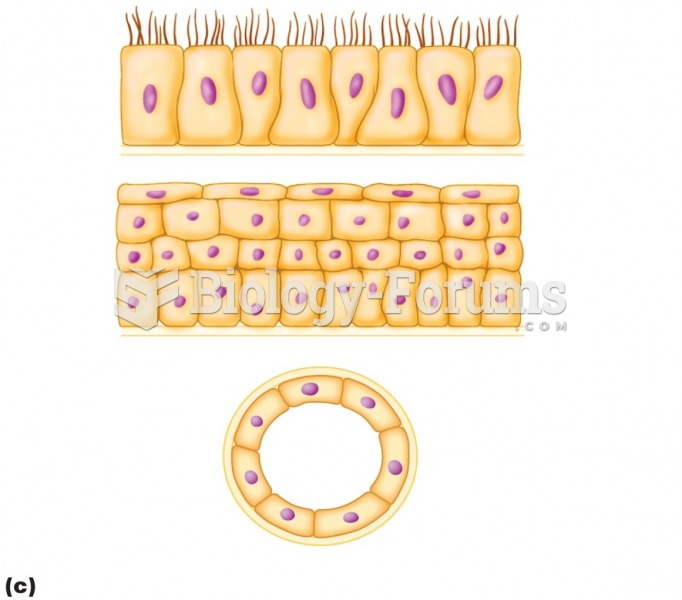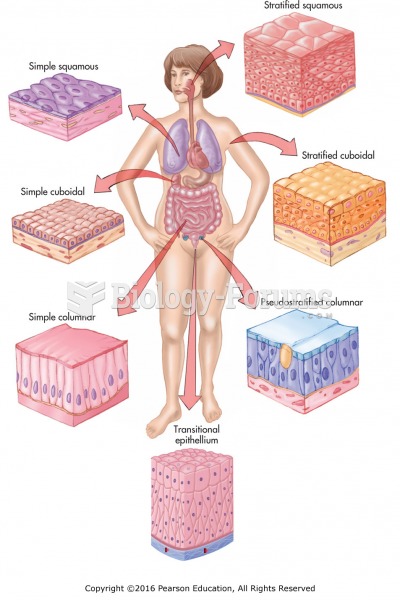|
|
|
On average, the stomach produces 2 L of hydrochloric acid per day.
Illicit drug use costs the United States approximately $181 billion every year.
To maintain good kidney function, you should drink at least 3 quarts of water daily. Water dilutes urine and helps prevent concentrations of salts and minerals that can lead to kidney stone formation. Chronic dehydration is a major contributor to the development of kidney stones.
When Gabriel Fahrenheit invented the first mercury thermometer, he called "zero degrees" the lowest temperature he was able to attain with a mixture of ice and salt. For the upper point of his scale, he used 96°, which he measured as normal human body temperature (we know it to be 98.6° today because of more accurate thermometers).
Between 1999 and 2012, American adults with high total cholesterol decreased from 18.3% to 12.9%






